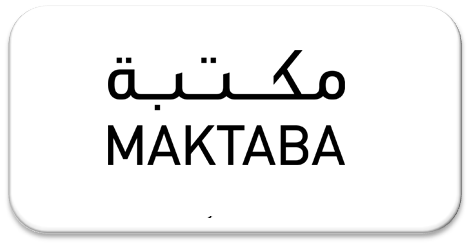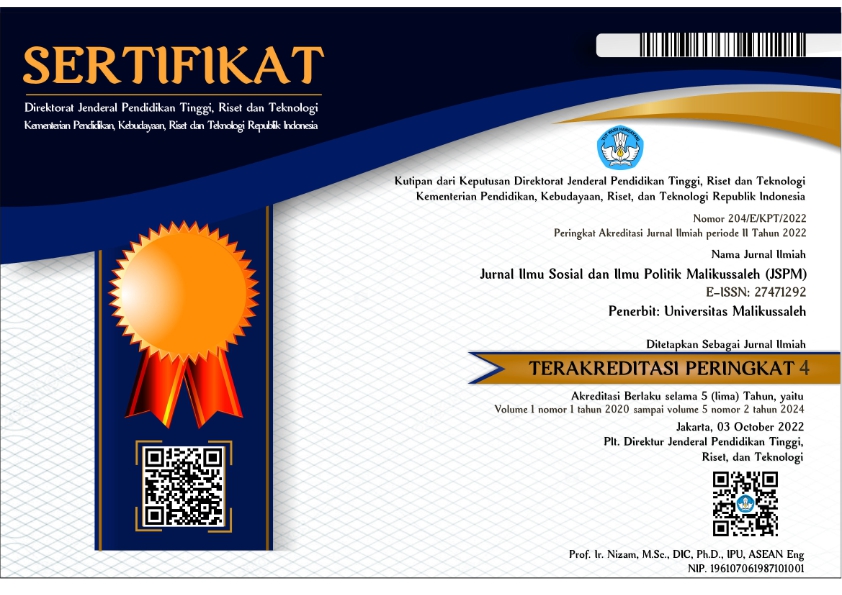KONFLIK PADA KAWASAN KONSERVASI TAMAN NASIONAL ALAS PURWO DAN SOLUSI PENYELESAIANNYA
Abstract
Conflict since 2000 between the community and alas purwo national park, triggered by the encroachment of forest areas by the community used for agricultural land area of 10 ha. Problems in the form of overlapping interests from various parties, there is no common perception about the function of the national park. This research aims to identify the causes of land conflicts in the national park area, along with solutions to conflict problems. This research is descriptive qualitative research with a method or approach to case studies. The selection of research locations was conducted through purposive sampling techniques with village criteria bordering the Alas Purwo National Park area, where there is a conflict of interest between the community and the manager of the national park area. Data collection through interviews, observations and documentation studies. Data analysts use interactive models, namely: data reduction, data presentation and conclusion withdrawal. The results of the study showed the efforts made by the national park in resolving the conflict that occurred in the Patuk Block, until now there has been no meeting point and results agreed upon by both sides. Land conflict resolution uses problem solving strategies that are integrative solutions for the realization of a joint agreement on the sustainability of conservation areas.
Konflik sejak tahun 2000 antara masyarakat dan pihak Taman Nasional Alas Purwo, dipicu oleh perambahan kawasan hutan oleh masyarakat yang digunakan untuk lahan pertanian seluas 10 ha. Permasalahan berupa tumpang tindih kepentingan dari berbagai pihak, belum adanya kesamaan persepsi mengenai fungsi taman nasional. Penelitian ini bertujuan untuk mengidentifikasi penyebab konflik lahan yang ada di kawasan taman nasional, beserta solusi pemecahan masalah konflik. Penelitian ini merupakan penelitian kualitatif deskriptif dengan metode atau pendekatan studi kasus. Pemilihan lokasi penelitian dilakukan melalui teknik purposive sampling dengan kriteria desa yang berbatasan dengan kawasan Taman Nasional Alas Purwo, dimana terjadi konflik kepentingan antara masyarakat dan pengelola kawasan taman nasional. Pengumpulan data melalui wawancara, observasi dan studi dokumentasi. Analis data menggunakan model interaktif, yaitu: reduksi data, penyajian data dan penarikan kesimpulan. Hasil penelitian menunjukkan upaya yang dilakukan pihak taman nasional dalam menyelesaikan konflik yang terjadi di Blok Patuk, sampai saat ini belum ada titik temu dan hasil yang disepakati kedua belah pihak. Penyelesaian konflik lahan menggunakan strategi problem solving yang bersifat solusi integratif demi terwujudnya kesepakatan bersama terhadap kelestarian kawasan koservasi.
Keywords
Full Text:
PDFReferences
Alam, D. (2016). ROLE PLAYERS ANALYSIS DALAM KONFLIK PENGELOLAAN SUMBER DAYA ALAM (Studi Kasus Konflik Pertambangan Mangan Di Kabupaten Timor Tengah Selatan, Provinsi Nusa Tenggara Timur Tahun 2010-2011). ROLE PLAYERS ANALYSIS DALAM KONFLIK PENGELOLAAN SUMBER DAYA ALAM (Studi Kasus Konflik Pertambangan Mangan Di Kabupaten Timor Tengah Selatan, Provinsi Nusa Tenggara Timur Tahun 2010-2011), 7(1), 16–36. https://doi.org/10.14710/politika.7.1.2016.16-36
Anthwal, A., Gupta, N., Sharma, A., Anthwal, S., & Kim, K. H. (2010). Conserving biodiversity through traditional beliefs in sacred groves in Uttarakhand Himalaya, India. Resources, Conservation and Recycling, 54(11), 962–971. https://doi.org/10.1016/j.resconrec.2010.02.003
Baiquni, M., & Rijanta, R. (2007). Konflik pengelolaan lingkungan dan sumberdaya dalam era otonomi dan transisi masyarakat. Bumi Lestari Journal of Environment, 7(1). Retrieved from https://ojs.unud.ac.id/index.php/blje/article/view/2414
Bayramov, A. (2018). Review: Dubious nexus between natural resources and conflict. Journal of Eurasian Studies, 9(1), 72–81. https://doi.org/10.1016/j.euras.2017.12.006
Bonsu, N. O., McMahon, B. J., Meijer, S., Young, J. C., Keane, A., & Dhubháin, Á. N. (2019). Conservation conflict: Managing forestry versus hen harrier species under Europe’s Birds Directive. Journal of Environmental Management, 252(April). https://doi.org/10.1016/j.jenvman.2019.109676
Dan, T., & Budaya, R. (2016). Budaya Lokal Sebagai Media Resolusi Dan Pengendalian Konflik Di Provinsi Maluku (Kajian,Tantangan Dan Revitalisasi Budaya Pela). POLITIKA : Jurnal Ilmu Politik, 6(2), 93-100–100. https://doi.org/10.14710/politika.6.2.2015.93-100
Dendup, P., Wangdi, L., Jamtsho, Y., Kuenzang, P., Gyeltshen, D., Tashi, T., … Tshering, B. (2021). Bird diversity and conservation threats in Jigme Dorji National Park, Bhutan. Global Ecology and Conservation, 30(March), e01771. https://doi.org/10.1016/j.gecco.2021.e01771
Fitri, I., Ahmad, Y., & Ahmad, F. (2015). Conservation of Tangible Cultural Heritage in Indonesia: A Review Current National Criteria for Assessing Heritage Value. Procedia - Social and Behavioral Sciences, 184(August 2014), 71–78. https://doi.org/10.1016/j.sbspro.2015.05.055
Herdiansyah, H., Soepandji, B. S., Seda, F. S., & Dewi, O. (2014). Conflict Management of Renewable Natural Resources in the Border of Indonesia-Malaysia: Sustainable Environmental Approach. Procedia Environmental Sciences, 20, 444–450. https://doi.org/10.1016/j.proenv.2014.03.056
Katuwal, H. B., Zhang, M., Baral, H. S., Sharma, H. P., & Quan, R. C. (2021). Assessment of farmers’ knowledge and perceptions towards farmland birds show the need of conservation interventions. Global Ecology and Conservation, 27, e01563. https://doi.org/10.1016/j.gecco.2021.e01563
Liao, K. H., & Chan, J. K. H. (2016). What is ecological wisdom and how does it relate to ecological knowledge? Landscape and Urban Planning, 155, 111–113. https://doi.org/10.1016/j.landurbplan.2016.07.006
Mirin, B. H., & Klinck, H. (2021). Bird singing contests : Looking back on thirty years of research on a global conservation concern. Global Ecology and Conservation, 30(July), e01812. https://doi.org/10.1016/j.gecco.2021.e01812
Najib, K. (2020). Government Ecology and the Indigenous Religion of the Suku Anak Dalam: Intersubjective Relations in Forest Conservation in Jambi, Indonesia. Jurnal Manajemen Hutan Tropika, 26(3), 303–315. https://doi.org/10.7226/JTFM.26.3.303.
Pruit, D,G & Rubin, J,Z. (2009). Teori Konflik Sosial. Yogyakarta: Pustaka Pelajar.
Ramadhan, D., & Budimanta, A. (2014). Resolusi Konflik Antara Masyarakat Lokal Dengan Perusahaan Pertambangan (Studi Kasus: Kecamatan Naga Juang, Kabupaten Mandailing Natal, Provinsi Sumatera Utara). Ilmu Lingkungan, 12(2), 92–104. Retrieved from http://ejournal.undip.ac.id/index.php/ilmulingkungan/article/view/10535
Ratnasari, Y. (2019). KONFLIK ANTARWARGA DESA: Analisis Simon Fisher Melalui Studi Kasus. 21(1), 74–96.
Setiawan, E., Sukesi, K., Hidayat, K., & Yuliati, Y. (2021). Conservation of Natural Resource Management in the Buffer Village Community of Alas Purwo Banyuwangi National Park East Java Indonesia Based on Local Wisdom. Local Wisdom : Jurnal Ilmiah Kajian Kearifan Lokal, 13(1), 100–111. https://doi.org/10.26905/lw.v13i1.5109
Sitthisuntikul, K., & Horwitz, P. (2015). Collective Rituals as Meaningful Expressions of the Relationships between People, Water and Forest: A Case Study from Northern Thailand. Journal of Intercultural Studies, 36(1), 88–103. https://doi.org/10.1080/07256868.2014.990365
Sumardjono, M. S. W. (1997). Penyelesaian Sengketa Pertanahan melalui lembaga mediasi. Era Hukum No 11/Th 3/1997, 13(2015), 803–818.
Tengö, M., Johansson, K., Rakotondrasoa, F., Lundberg, J., Andriamaherilala, J. A., Rakotoarisoa, J. A., & Elmqvist, T. (2007). Taboos and forest governance: Informal protection of hot spot dry forest in southern Madagascar. Ambio, 36(8), 683–691. https://doi.org/10.1579/0044-7447(2007)36[683:TAFGIP]2.0.CO;2
DOI: https://doi.org/10.29103/jspm.v3i2.7770
 Article Metrics
Article Metrics
 Abstract Views : 980 times
Abstract Views : 980 times
Refbacks
- There are currently no refbacks.
Copyright (c) 2022 Eko Setiawan

This work is licensed under a Creative Commons Attribution-ShareAlike 4.0 International License.
INDEXED BY:




.png)









Redaksi Jurnal Ilmu Sosial dan Ilmu Politik Malikussaleh (JSPM): Gedung Fakultas Ilmu Sosial dan Ilmu Politik Universitas Malikussaleh. Kampus Bukit Indah Jln. Sumatera No.8, Kec. Muara Satu Kota Lhokseumawe, Prov. Aceh, Indonesia. eMail: jspm@unimal.ac.id

This work is licensed under a Creative Commons Attribution-NonCommercial-ShareAlike 4.0 International License



.png)



